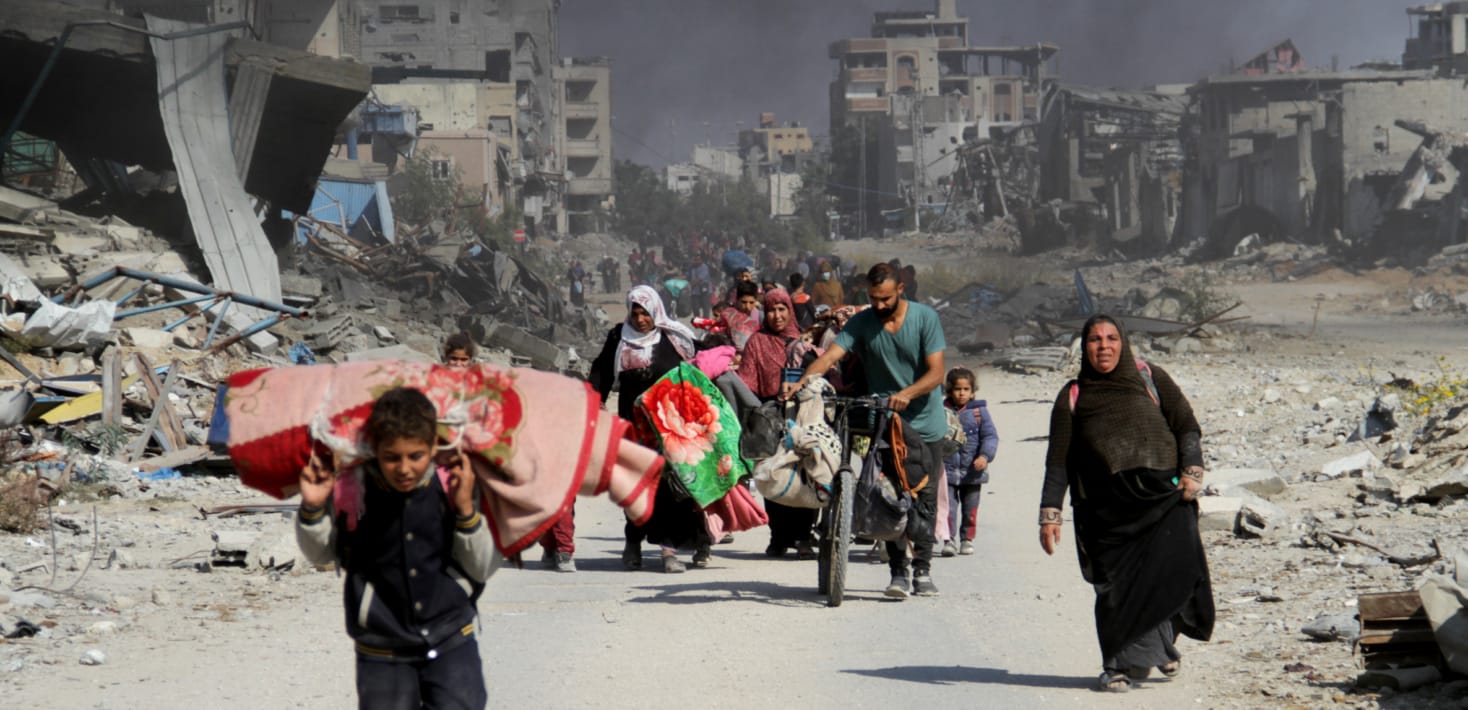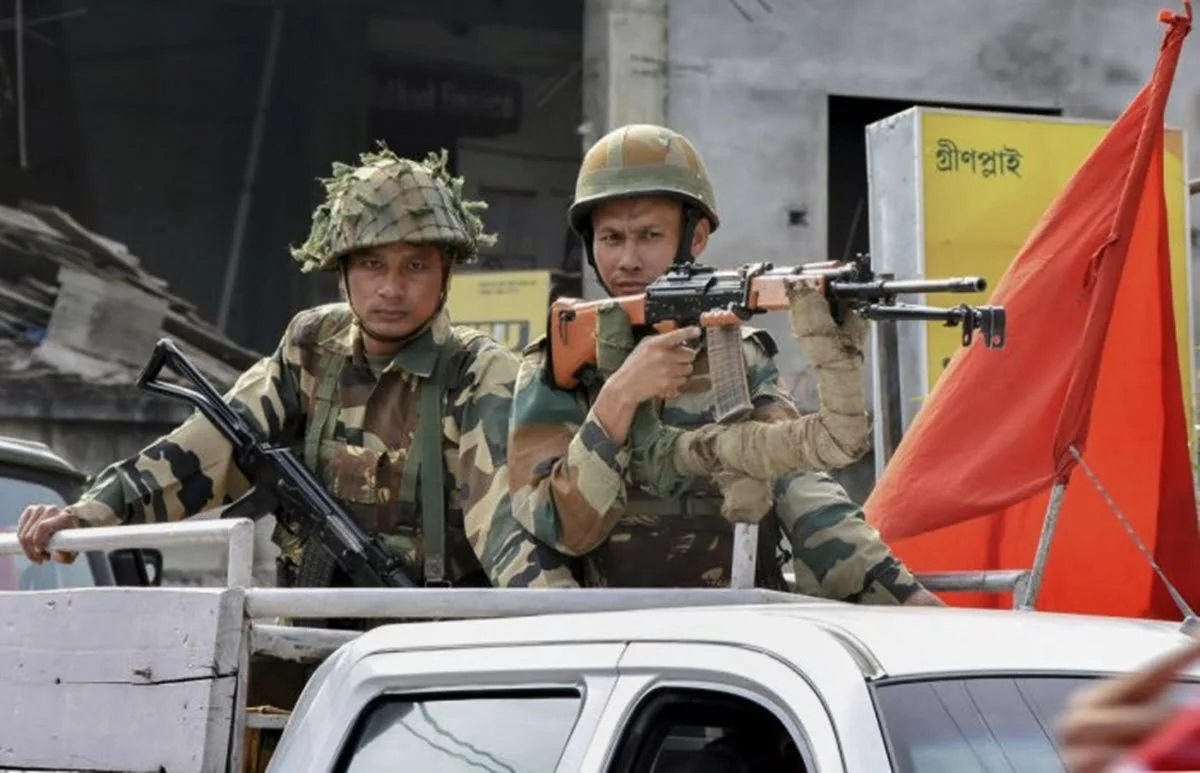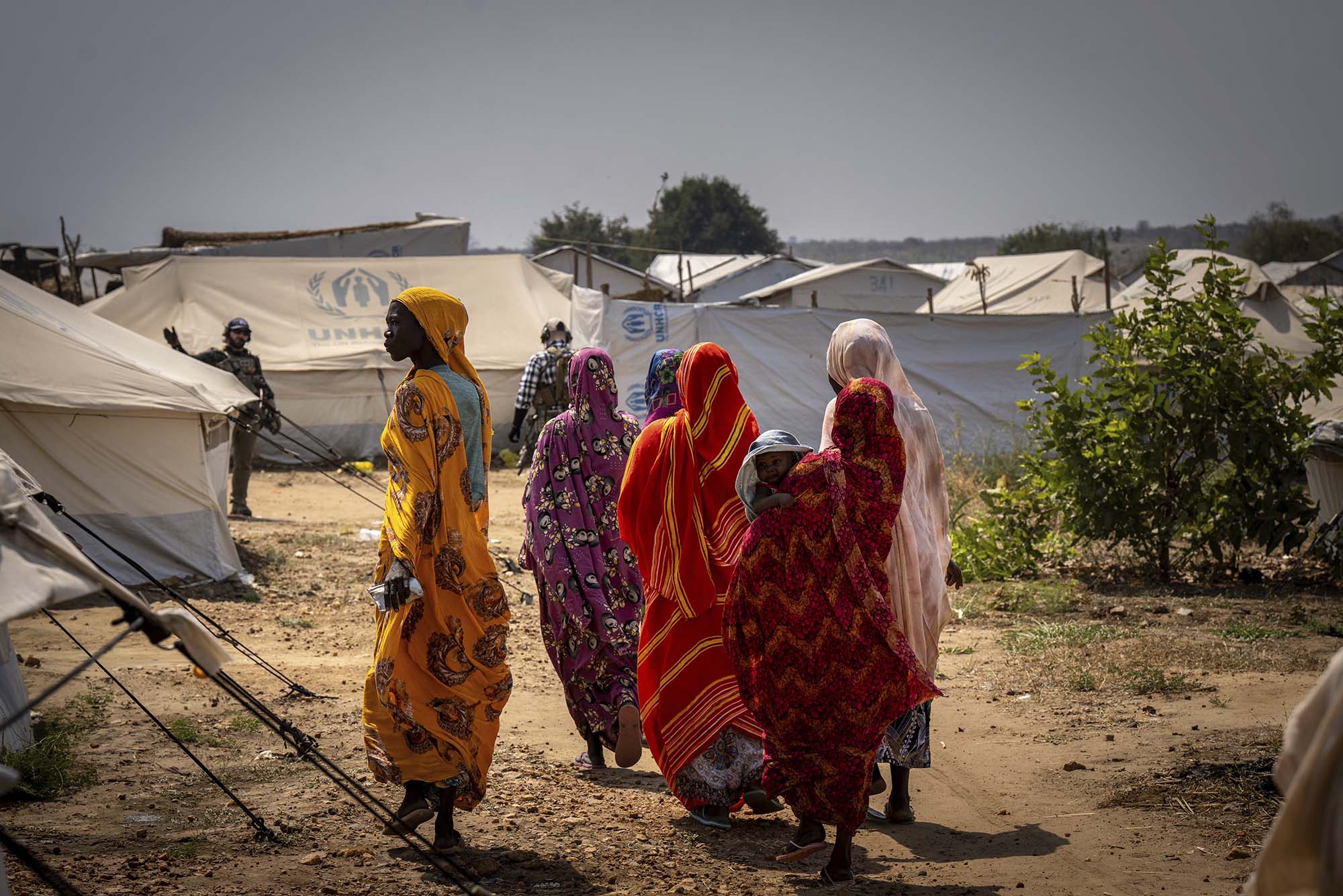44,000 killed, more than 90 percent displaced in the ongoing conflict—international bodies are scrambling to define the continued violence in Gaza. What is a genocide? Why is it important to call a spade, spade?
Earlier this year, Edem Wosornu, from the United Nations Office for the Coordination of Humanitarian Affairs, was quoted saying (about Israel’s atrocities), “To be frank, we are running out of words to describe what is happening.” While the revolution might not be televised, violence—as social media has shown us—will be.
Over the past 14 months, the world collectively has been a witness to massive and targeted violence, murder, starvation, disease, and displacement. 14 months later, we are still debating what we shall name it. Self-defence? War Crimes? Apartheid? Ethnic-cleansing? Genocide?
Why is Amnesty’s new report, terming Israel’s continued violence in Gaza as genocide, news? What is indeed in a name?
Genocide: the term, the history
In 1941, a few months after fleeing the Nazi occupation, Raphael Lemkin heard a radio address by British Prime Minister Winston Churchill relaying the violence of World War II: “Scores of thousands—literally scores of thousands—of executions in cold blood are being perpetrated by the German police troops… We are in the presence of a crime without a name.” (Eighty-three years apart and we still seem to be grappling for words.) A lack of linguistic framework and legal recuse inspired Lemkin, who had lost his family to the Holocaust, to coin the term “genocide” in his 1944 book.
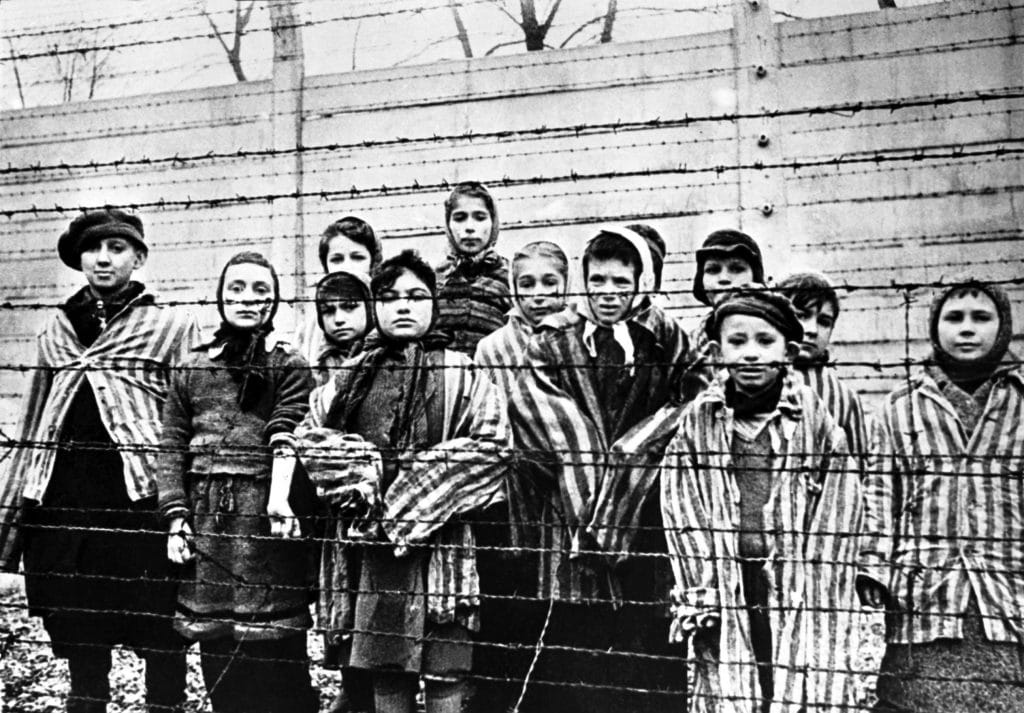
There are a few things of note here: First, targeted mass murder was not new, but it was the first time that we had a name to accuse it by. Second, while Lemkin was deeply marked by his own experience of this violence, it was surprisingly an erstwhile massacre that profoundly affected his legal advocacy—the Armenian genocide by the Ottoman Empire during World War I. Thirdly, the radio relay that gave birth to this contentious term was by someone who has been accused of engineering mass murder, Sir Winston Churchill. The last story has two sides, as is always the case—the side of the accuser and the accused. While the more recent post-colonial studies have called the Bengal Famine of 1943 a genocide, voices from the UK have unsurprisingly defended their beloved hero, especially bristling at the usage of the term “genocide.”
Despite Lemkin’s detailed study and work to define the Armenian genocide to create legal frameworks, genocide often remains synonymous and limited to the Holocaust and Nazi genocide in our collective consciousness. It seems especially bound to the horrifying fate of the Jews under occupation, comfortably undermining the Romani deaths. Sixty lakh Jewish people, two point five lakh Romani people (upper estimation being five lakh), and eighteen lakh non-Poles were killed during the Nazi genocide.
Pejoratively termed “Gipsies” and widely discriminated against around the world, the Roma community was incarcerated in numerous camps alongside the Jews. In Auschwitz-Birkenau, they were placed in a special “Gypsy family camp.” The 1948 UN Genocide Convention says that genocide has occurred when any of five prohibited acts are carried out with the intent “to destroy in whole, or in part, a national, ethnic, racial, or religious group.” There can be no doubt that the Nazi state committed genocide against the Roma community.
The word genocide is derived from the Greek “genos” (people, tribe, or race) and the Latin “cide” (killing). The world has seen numerous instances of targeted mass murder against races and communities, but the UN Genocide Convention, which Israel ratified in 1950, has legally only recognised three cases—leading to trials—Rwanda in 1994, Bosnia (and the 1995 Srebrenica massacre), and Cambodia under the 1975-9 Pol Pot regime. While we discuss Israel’s genocide in Gaza, there are numerous genocidal states in action as we speak.
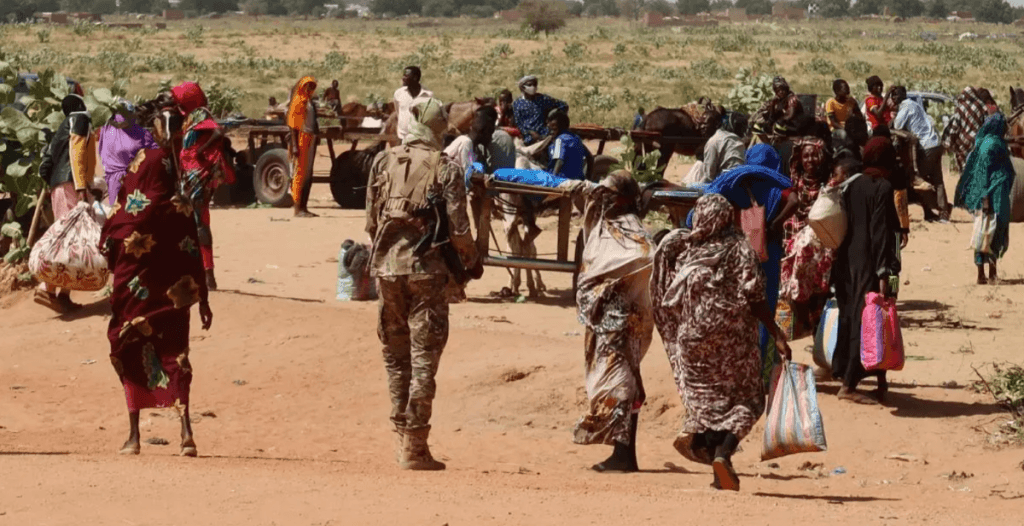
Since 2016, Myanmar has been conducting systematic attacks on the Rohingya Muslim minority, causing displacement of nearly ten lakh. Darfur saw mass atrocities against non-Arab civilians and protestors from 2003–2008, leading to more than 4 lakh killed and millions displaced. While the world’s attention is focused on Gaza and Ukraine, Sudan is experiencing a resurgence of violence, prompting the UN to warn of an increasing risk of genocide. To only worsen the accusation against the UN’s historically lacklustre show against genocide, in the few cases they have recognised, the prosecution saw only a few perpetrators actually convicted for their crimes. Over 8 lakh were killed in the 1994 genocide in Rwanda; only 93 were indicted. Ethnic cleansing and mass killings in former Yugoslavia saw 161 indicted. Genocide in Cambodia during the Khmer Rouge regime killed 17 lakh; only two were convicted of genocide. Setting a precedent that would definitely make genocidal criminals around the world shake in their boots!
Calling Israel by its name: Genocidal
Let’s explore the complex world of technical analysis. Would Israel slip through the many loopholes created by a violent world? A question that would naturally come up in the midst of this linguistic confusion—what is not a genocide? Crimes against humanity—like murder, enslavement, deportation, torture, or imprisonment targeting civilians—would not amount to genocide as they target a mixed civilian population without an intent to annihilate a specific group “as such.”
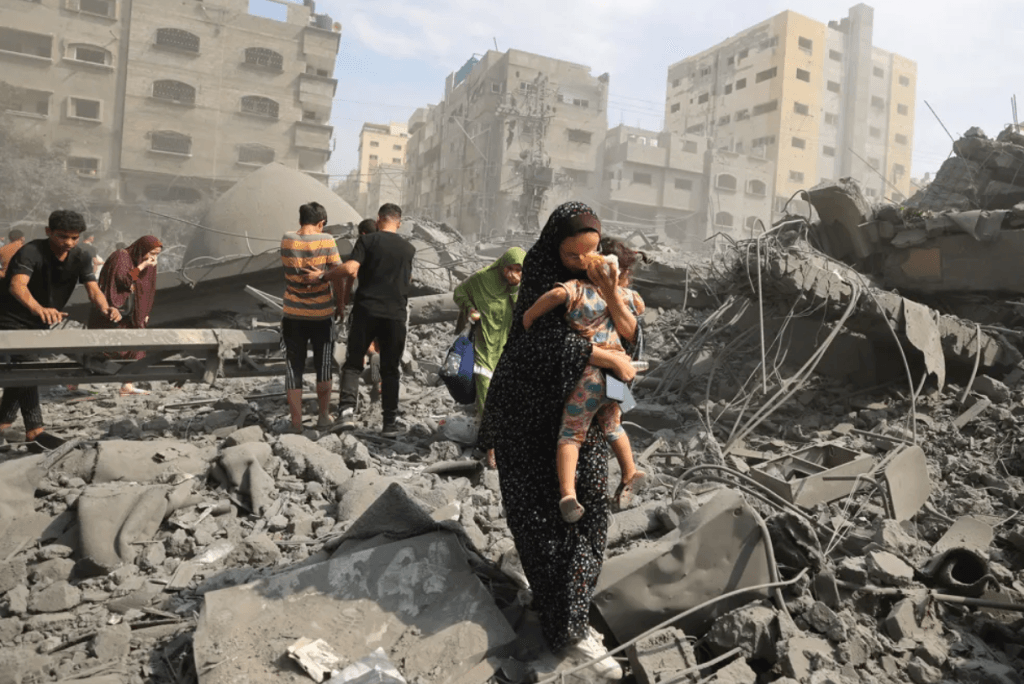
War crimes—deliberately targeting civilians or prisoners of war during armed conflicts—would not amount to genocide, as these violations occur in the context of war and do not necessarily involve group-specific intent to destroy. Ethnic cleansing—forcing a specific ethnic group to leave their territory through violence or coercion—does not amount to genocide either, as strange as that sounds, because the intent is to remove the group and not necessarily to destroy it. Mass killings are not genocidal when they lack the specific intent to eliminate a community. This mind-boggling list of violences that are not genocide is enumerated in Alain Destexhe’s book Rwanda and Genocide in the 20th Century.
Israel has been accused of mass murder, war crimes, crimes against humanity, ethnic cleansing, and yes, genocide. Former IDF soldier and defence minister, Moshe Ya’alon, accused the Israeli military’s actions in northern Gaza of “ethnic cleansing.” A few decades back, the same Ya’alon was quoted saying, “The Palestinian threat harbours cancer-like attributes that have to be severed.”
In May 2024, South Africa took Israel to court for committing genocide against the Palestinians, following Hamas’s 7 October attack. By then, more than 35,800 people had been killed in Gaza by Israeli forces. South Africa accused Israel of indiscriminate force, air strikes, causing serious bodily and mental harm to Palestinians, deliberately inflicting conditions that could lead to the physical destruction of Palestinians as a group, and most importantly, Israeli public rhetoric, including comments from Prime Minister Benjamin Netanyahu, as evidence of “genocidal intent.” Fourteen countries subsequently expressed intent to join South Africa’s case against Israel in the International Court of Justice (ICJ). A few months before this, the ICJ had said that it was “plausible” that Israel was committing genocide while refraining from calling for a ceasefire.
Warrant, evidence and ceasefire
By November, the International Criminal Court (ICC) had issued arrest warrants for Israel PM Netanyahu and former Defence Minister Yoav Gallant for using starvation and deprivation as a method of warfare. Four days after Hamas’ attack on October 7, 2023, Yoav Gallant was the one who had decreed that no food, water, electricity, or fuel would be allowed in the Gaza strip.
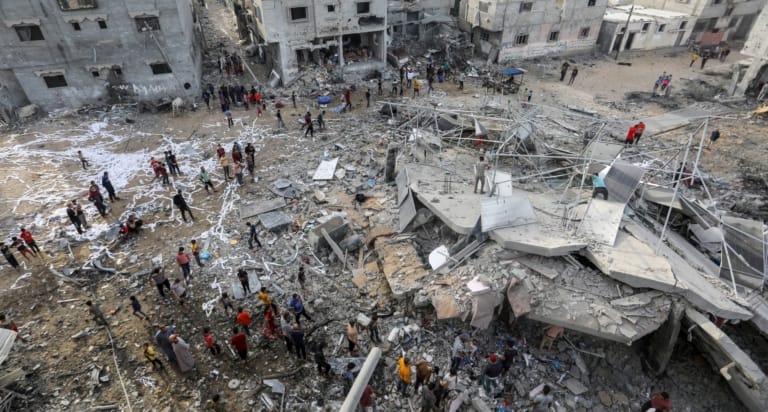
The same Gallant, who likened Palestinians to “human animals,” was of the opinion that as part of any ceasefire deal Israel should promote or encourage a new Palestinian faction to control Gaza in a “day after” scenario. A few days before the ICC arrest warrant, Netanyahu fired his defence minister, who believed Israel was “conducting a war without a compass.”
The arrest warrants released by the ICC were advised and backed by Holocaust survivor Theodor Meron, who also oversaw the world’s first genocide trials. Unfortunately, the warrant failed to identify genocide as the motive of the attacks, even as UN experts keep harping that it is important to call a genocide a genocide. The UN Court ordered Israel to prevent genocide early this year while not making any move to demand an immediate stop to the violence.
On October 7 last year, Hamas killed 1,200 people in Israel and took another 251 hostages. Since October 2023, more than 44,000 people in Gaza have been killed and 104,000 injured in the war launched by Israel in Gaza. The line that separates the horror of genocide from the horror of violence in general seems to be the specificity of the target—the motive to obliterate a particular community.
Amnesty International’s 297-page report “You Feel Like You Are a Subhuman,” Israel’s Genocide Against Palestinians in Gaza, analysed 62 pieces of media, including videos, audio recordings, and photographs, which showed Israeli soldiers making calls for the destruction of Gaza or the denial of essential services to people in Gaza, or celebrating the destruction of Palestinian homes, mosques, schools, and universities. “Of these, 31 called orally or in writing for the annihilation, destruction, burning, or “erasure” of Gaza, or used other similar rhetoric.”
While people in power fight over the technicalities of the gruesome violence, the number of victims continues to escalate in Gaza. Beyond the death count and number of injured diseases are spreading in Gaza as sewage contaminates camps and coast.
In a similar investigation, the Washington Post revealed an array of such evidence. One soldier was quoted saying, “I took these videos to raise the morale of the people at home, and I don’t regret it for a moment.” After Amnesty International’s detailed report that not only lists accusations of indiscriminate aerial and ground attacks, calculated physical destruction, and engineering the hunger crisis but also fleshes out Israel’s specific intent to destroy, Israel unsurprisingly took to the most credible platforms online—X (formerly Twitter). Israel’s Foreign Ministry stated, “The deplorable and fanatical organisation Amnesty International has once again produced a fabricated report that is entirely false and based on lies.”
On 9th December, at UN’s 77th Genocide Prevention event, activists interrupted speakers, asking why, despite an ongoing genocide in Gaza there was no mention of it in the discussions. While people in power fight over the technicalities of the gruesome violence, the number of victims continues to escalate in Gaza. Beyond the death count and number of injured diseases are spreading in Gaza as sewage contaminates camps and coast.
WHO has reported 96,417 cases of scabies and lice since the start of the war, 9,274 cases of chickenpox, 60,130 cases of skin rashes, and 10,038 impetigo cases. The first in 25 years, a polio case was confirmed in October, causing major concern. 1 in 3 children under 2 years of age are today acutely malnourished in the north of Gaza. Over 1.8 million Palestinians in Gaza are facing severe hunger, with 70 percent of crop fields destroyed. There is only one demand that rises from this unmitigated display of genocidal violence: immediate and unconditional ceasefire.
Recently, the United Nations General Assembly voted overwhelmingly to demand an immediate ceasefire in the Gaza Strip. From the 193-member assembly, 158 voted in favour—including India, nine against it—including Israel and its biggest enabler, the USA, and 13 abstained. The word “genocide” will be of utmost importance in the post-ceasefire period, when the world that had to bear the images of blood and tears can also witness a public trial of the genocidal criminals. One can hope Meron gets to preside over the hearings, for poetic justice.
About the author(s)
She/they is an editor and illustrator from the suburbs of Bengal. A student of literature and cinema, Sohini primarily looks at the world through the political lens of gender. They uprooted herself from their hometown to work for a livelihood, but has always returned to her roots for their most honest and intimate expressions. She finds it difficult to locate themself in the heteronormative matrix and self-admittedly continues to hang in limbo
